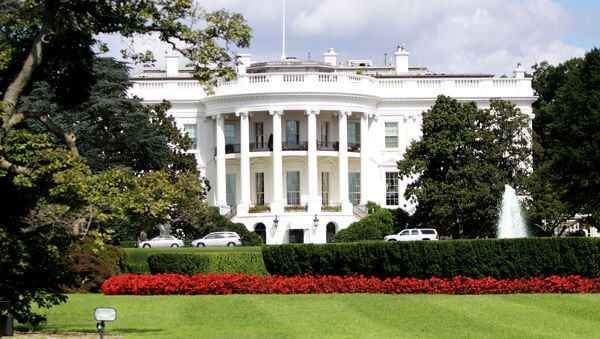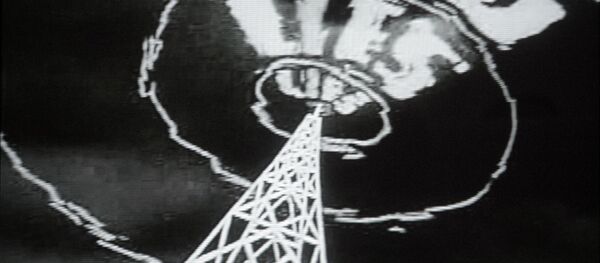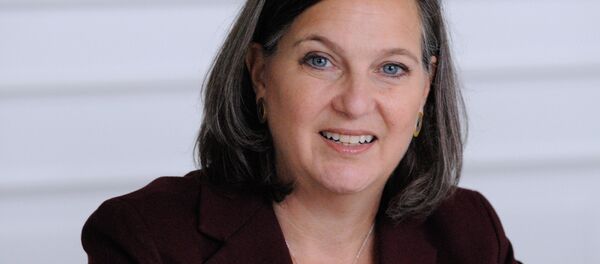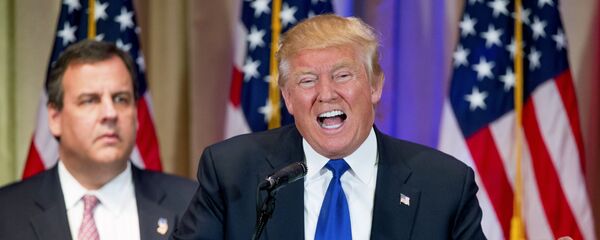Remarkably, as US President Obama's term nears its end, the voice of Washington's "party of war" is becoming louder.
Commenting on Barack Obama's recent interview with Jeffrey Goldberg of the Atlantic, American politicians Steven Pifer and John Herbst, former US ambassadors to Ukraine, suggest that the White House failed to provide enough support to Ukraine in the face of Russian "aggression."
"The United States could have done more to help Kiev resist the Kremlin's aggression without a war with Russia," Pifer and Herbst write in their article for The National Interest.
According to the former ambassadors, Russia is harboring plans to undermine post-Cold War Europe by projecting its military power beyond its borders.
In short, their allegations fully comply with the stance voiced recently by NATO Supreme Allied Commander General Philip Breedlove and his counterparts in the Pentagon and NATO.
According to Breedlove, Russia poses an "existential threat" to the US and its European allies and partners, however ludicrous it sounds.
Still, there is nothing funny about the US hawks' attitude toward Moscow, since it is the world's peace what is at stake, experts note.
The US war party is pushing ahead with a new Cold War that is even more dangerous than the previous one, Stephen F. Cohen, professor emeritus of Russian studies at New York University and Princeton University, has repeatedly stressed in interviews and publications.
Meanwhile, Washington has announced that sanctions on Crimea which voluntarily re-unified with Russia two years ago will remain in place.
"Sanctions related to Crimea will remain in place as long as the occupation continues. We again call on Russia to end that occupation and return Crimea to Ukraine," Assistant Secretary and Department Spokesperson John Kirby's press statement says.
It seems rather strange that while approving and praising Kosovo's secession from Serbia, the US State Department is still in denial of the fact that the people of Crimea have the legitimate right to self-determination, enshrined in the UN Charter.

And still, according to Pifer and Herbst, this is not enough: the White House should adopt a more assertive foreign policy in Ukraine.
"What should Washington do? It should keep providing Kiev political support, and work with the European Union to offer additional financial assistance, provided that Ukraine accelerates reforms and anti-corruption measures. It should also provide additional military assistance," they claim, adding that "the argument that providing some arms would have led to an inevitable US-Russian military clash does not hold water."
Pifer and Herbst are very serious about boosting Kiev's military capability.
On February 1, the report entitled "Preserving Ukraine's Independence, Resisting Russian Aggression" was released by the Atlantic Council, the Brookings Institution and the Chicago Council on Global Affairs.
The report's authors — Ivo Daalder, Michele Flournoy, John Herbst, Jan Lodal, Steven Pifer, James Stavridis, Strobe Talbott, and Charles Wald — demand nothing less than $3 billion in nonlethal and defensive lethal military assistance to Ukraine over the next three years.
Openly disenchanted by Barack Obama with his "Don't do stupid s-t" foreign policy axiom, the US neocons are apparently preparing to share their hopes and aspirations with Obama's successor.
The question then arises, whether or not a new president will lend the war party's proposals a sympathetic ear.




